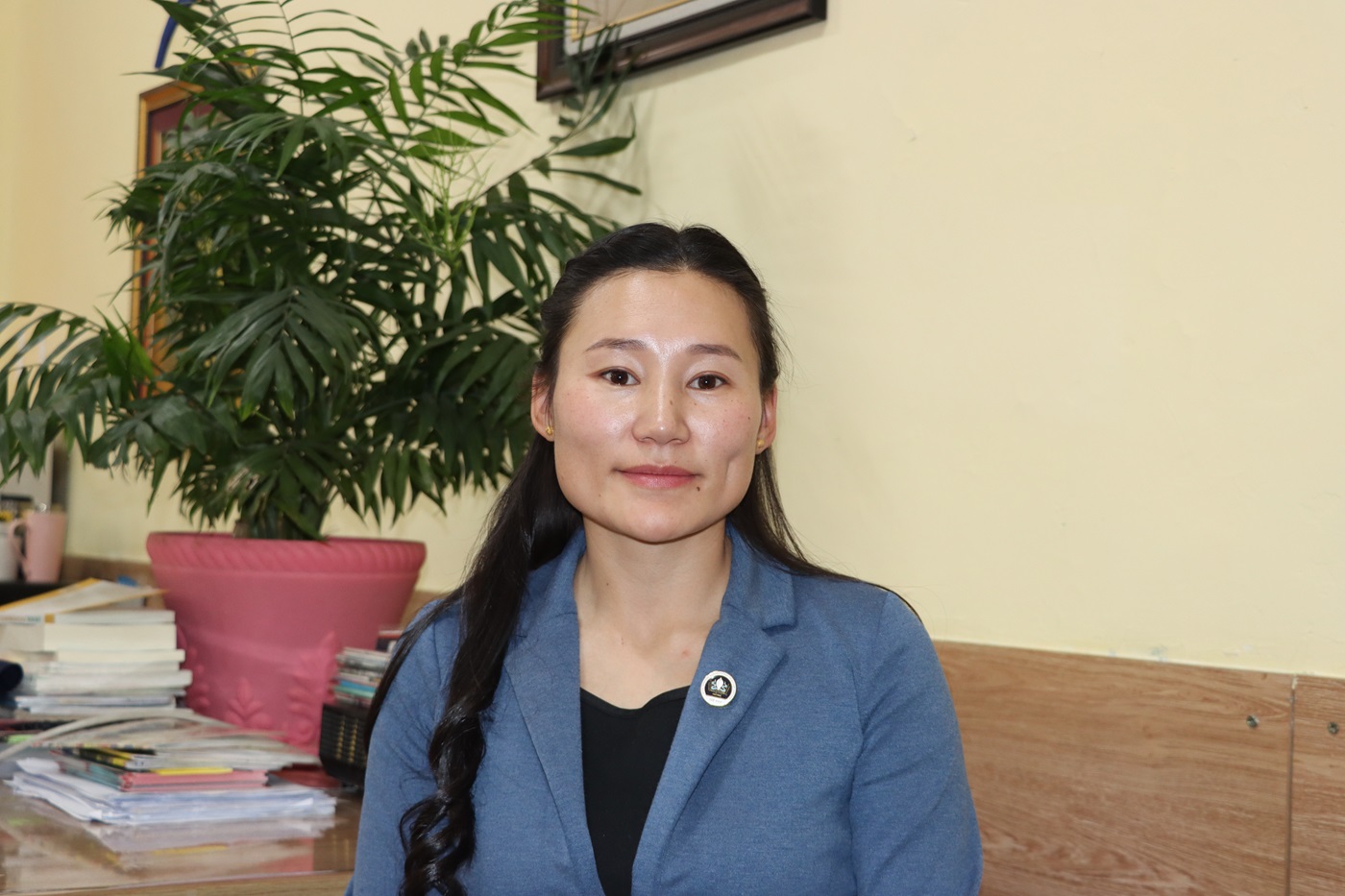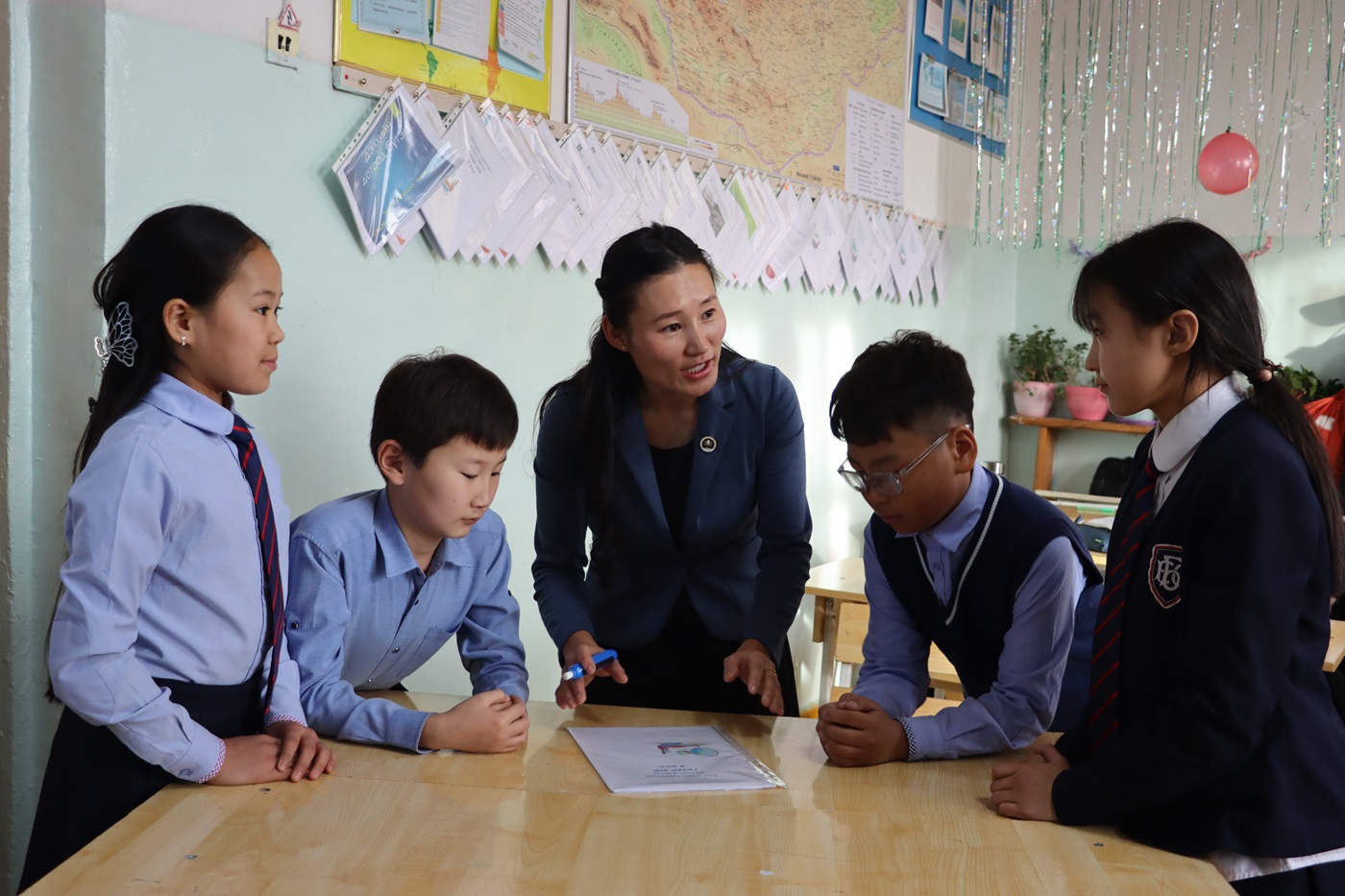Advancing Participatory and Traceable Classroom Rules in Secondary Education
In the realm of secondary education, the role of a teacher transcends mere impartation of knowledge; it extends to fostering lifelong skills and nurturing a culture of respect of human rights. Among the essential qualities required are patience, adaptability, resilience, and effective communication, especially in guiding students with diverse backgrounds and temperaments. At Laboratory School No. 1 in Jargalant Soum, Khovd Aimag, O. Myadagmaa, a biology teacher, is leading a pioneering initiative in collaborative classroom rule-making, emphasizing students’ active involvement and contributions.

Overview of the Project
Under the aegis of the “Establishing School-Based Child Protection Mechanisms in Mongolia” project by Save the Children Japan, Mongolia Office, efforts are underway to fortify child protection mechanisms within schools. The project focuses on prevention, early detection, and response to child violence through robust coordination between schools and multidisciplinary teams.
Empowering Students for a Safer Environment
A significant aspect of this initiative is empowering students to understand their rights, recognize violations, seek redress, and provide support to peers facing challenges. By amplifying children’s voices on protection issues, the project ensures their concerns are integrated into institutional policies and procedures.

Applying Knowledge and Sharing Insights
Drawing from insights gained through the project, Myadagmaa highlights the pivotal role of classroom rules in fostering teamwork, mutual respect, and adherence to societal norms. She emphasizes that these rules serve as non-coercive tools for guiding students’ learning and development.
To gauge student perspectives, Myadagmaa conducted a meticulous survey, revealing that 79% of students prioritize orderliness for enhancing focus and mutual respect. Additionally, 11% underscored risk mitigation, while 5% emphasized collaborative problem-solving.
Challenges and Proposals for Improvement
Despite recognizing the importance of rules, a significant portion (68%) admitted to inconsistent adherence. Myadagmaa emphasizes the need for student participation in rule development and implementation for effective classroom management. She proposes inclusive strategies, positive reinforcement, and integration of rules into broader school regulations during training sessions.
Noteworthy Achievements
The “Establishing School-Based Child Protection Mechanisms in Mongolia” project has yielded commendable outcomes, with trained educators like Myadagmaa leading transformative initiatives. Through active engagement and sharing of knowledge, she has contributed significantly to creating a safe and conducive learning environment.
Conclusion
Myadagmaa’s approach exemplifies the value of participatory and traceable classroom rules in promoting student engagement, mutual respect, and a culture of responsibility. By empowering students and fostering collaboration, educators can create inclusive learning environments that nurture holistic development and uphold fundamental rights.

